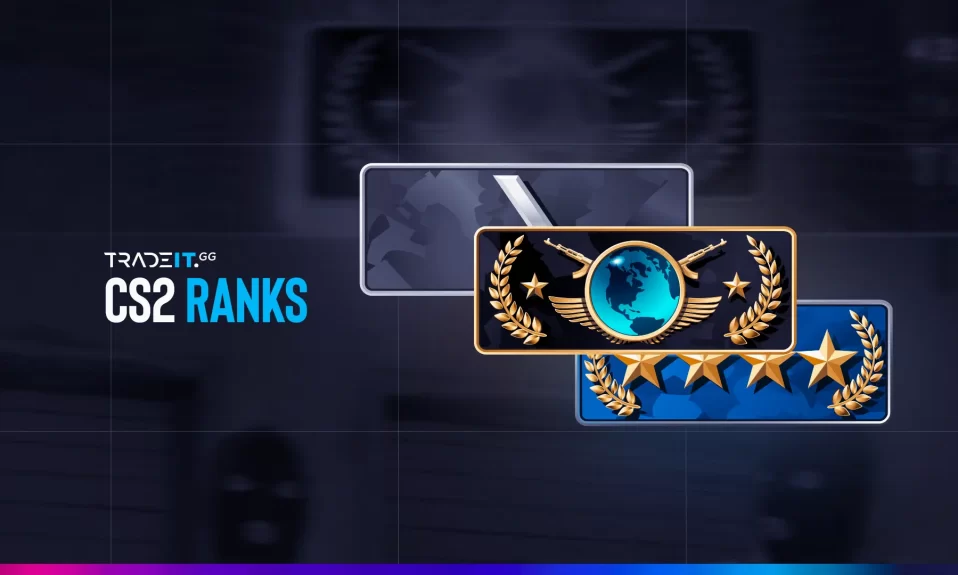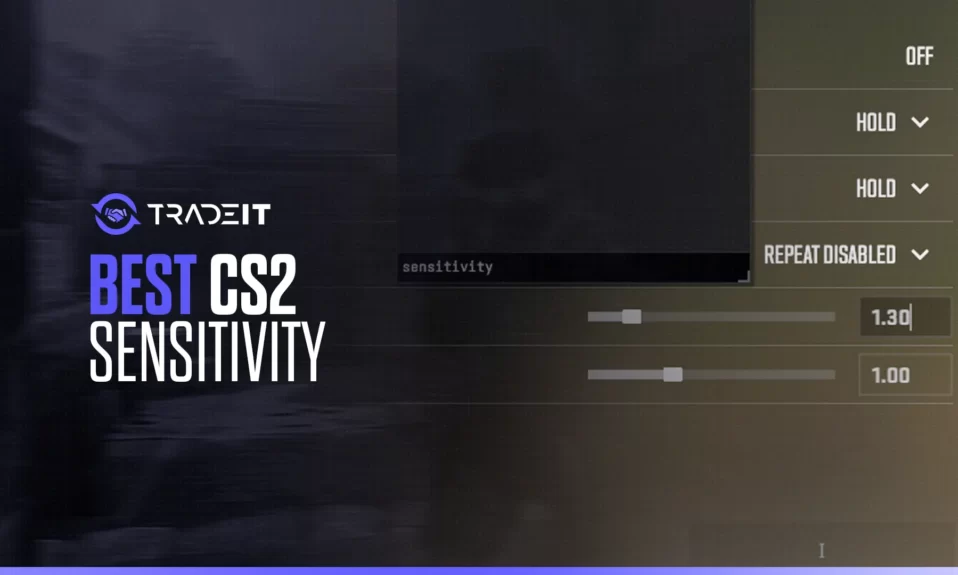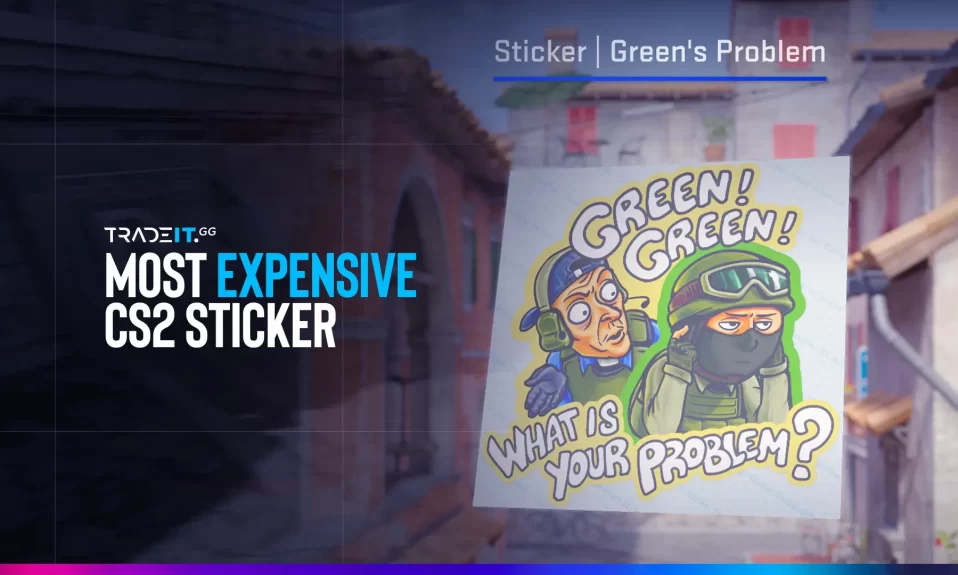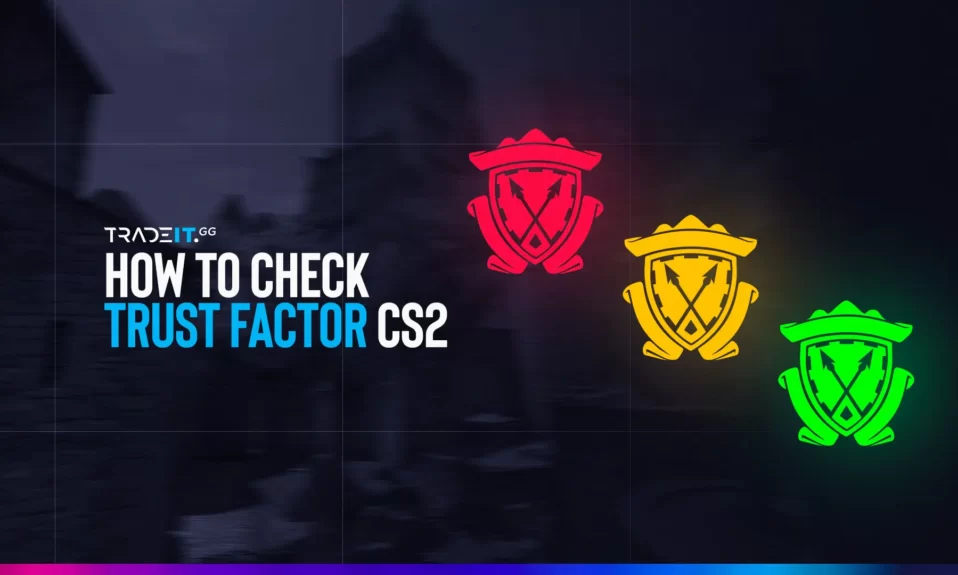
In Counter-Strike 2, your skill level isn’t the only thing that affects matchmaking. Valve also uses a hidden metric called Trust Factor – an invisible score that determines who you get matched with. If yours is low, you’ll likely run into cheaters, toxic players, or longer queue times – even if you’re playing well.
Nobody knows for sure how the Trust Factor works in CS2, but it’s not hard to guess how it is calculated. In this guide, you’ll find out all you need to know about this issue.
Key Takeaways
- The Trust Factor in CS2 is a hidden reputation score, most likely influenced by in-game behavior, Steam activity, and community engagement, which affects matchmaking quality and experience.
- Players can improve their trust factor by maintaining positive in-game conduct, participating actively and positively in the Steam community, avoiding cheating, and fostering fair play.
- Bans and penalties can detrimentally impact the Trust Factor, and while some bans are irreversible, positive behavior and community feedback can help in regaining a good Trust Factor standing.
The Basics of Trust Factor in CS2
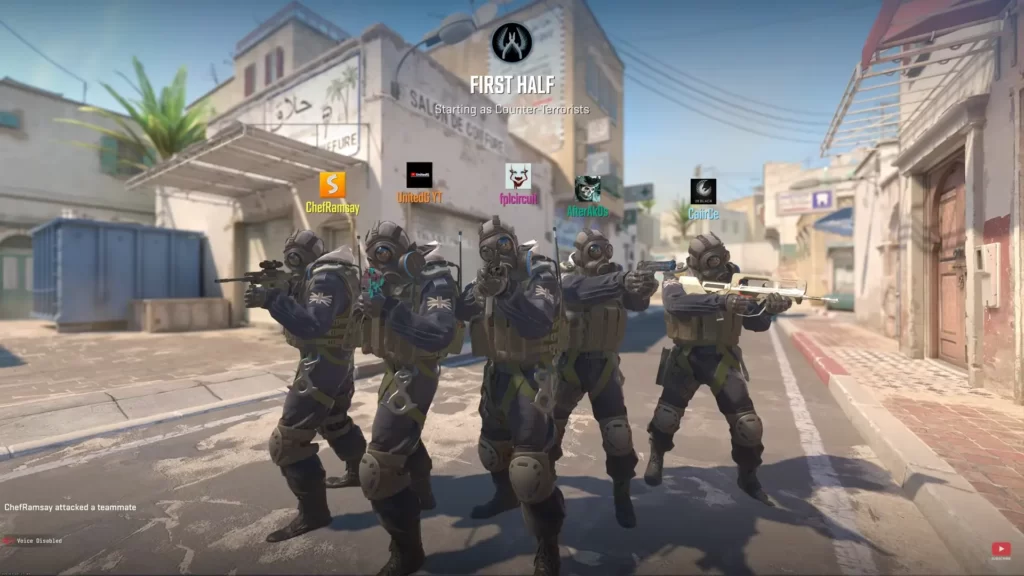
Trust Factor in CS2 is Valve’s behind-the-scenes system for matching players. While the exact formula is unknown, it likely includes things like:
- How often you’re reported by teammates or enemies
- Whether you’ve been banned before
- Your communication style (positive vs toxic)
- Your Steam account history and activity
It’s not limited to CS2 your behavior across all Steam games can impact it.
Valve, the developer of CS2, has kept the criteria for how Trust Factor is determined under wraps, challenging players to consistently display good behavior, not just in CS2 but in all Steam games, to achieve a high Trust Factor.
Trust Factor’s Role in Matchmaking
Trust Factor pairs you with players who have a similar level of trust in Valve’s system. That’s why two players with similar ranks can have completely different matchmaking experiences. A high Trust Factor means fewer toxic players, better comms, and fairer games. A low one? Expect chaos.
It is believed that it also goes the extra mile to pair players with comparable trust factors, thereby enhancing the overall match experience.
Valve’s Trust Factor considers the historical interactions and behavior of new players, not only within CS2 but also within the entire Steam platform.
A positive history significantly enhances your initial Trust Factor, underlining the significance of maintaining consistent and positive interactions across all Steam services.
Strategies to Boost Your Trust Factor
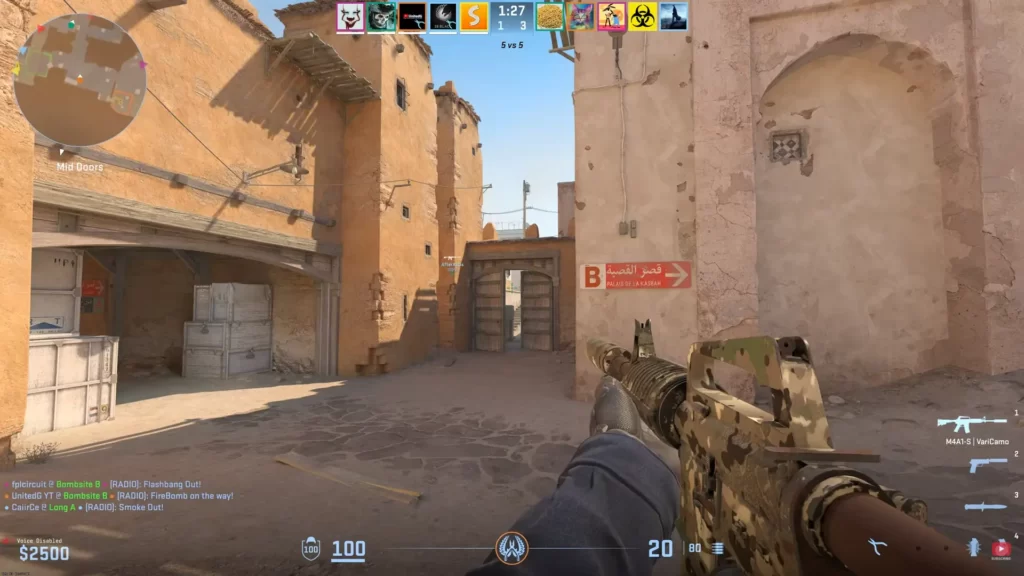
Enhancing your Trust Factor requires:
- Don’t get reported – avoid griefing, trolling, or team damage.
- Be positive – help your team, use voice/text respectfully.
- Stay clean -don’t use cheats, third-party software, or shady launch options.
- Level up your Steam account – buy games, leave reviews, earn badges.
- Join and contribute to Steam groups and discussions.
Engaging in these actions as a positive member can significantly elevate your Trust Factor.
Adhering to community guidelines and maintaining a positive presence in the CS2 and Steam communities can also enhance your Trust Factor, leading to a better matchmaking experience.
It’s also important to avoid team damage and contribute to Steam discussions, as these actions might significantly impact your Trust Factor.
Strengthening Your Steam Account
Your Steam account is a big part of your Trust Factor. A low-level or brand-new account with minimal games or VAC history might get flagged more often.
To build credibility:
- Increase your Steam level by crafting badges (you earn cards by playing legit games)
- Make your profile public (helps Valve build trust)
- Avoid VAC bans, trade bans, and toxic behavior in any Steam game
In 2025, scammers and cheaters still try to fake accounts, and Valve watches for those patterns. A clean, active Steam profile is the easiest long-term boost.
Prime Status and Its Impact on Trust Factor
Buying Prime Status in CS2 unlocks better matchmaking and likely increases your Trust Factor. It’s Valve’s way of separating serious players from free accounts used by hackers or trolls.
In 2025, Prime Status is still considered the “entry ticket” to serious matches. If you’re not Prime, you’re more likely to get matched with cheaters, smurfs, or low-Trust players.
Can You Check Your Trust Factor in CS2?
You can’t see your exact Trust Factor score—Valve keeps that info private. But you’ll notice clues:
- Long queue times = possibly low Trust
- Constant toxic teammates = low Trust group
- A friend gets a “Your friend has a significantly lower Trust Factor” message = confirmed low Trust
The best way to “check” your Trust Factor is to look at the quality of your matches and how quickly you find games.
Do’s and Don’ts to Boost Trust Factor
| ✅ Do This | ❌ Avoid This |
|---|---|
| Stay active on your Steam account | Getting reported often |
| Use voice chat respectfully | Griefing or trolling teammates |
| Level up your Steam profile | Playing on brand-new accounts |
| Buy and play legit Steam games | Using cheats or third-party tools |
| Join CS2 or Steam discussions | Insulting players or rage-quitting |
Summary
Playing well in CS2 is only part of the equation. Your Trust Factor quietly decides the kind of players you’ll face. Keep your Steam account clean, avoid toxicity, and be a team player if you want consistent, fair games.
Other Topics You Might Be Interested In
- See a complete list of CS2 skins on Tradeit.
- Discover the most expensive CS2 skins.
- Discover the cheapest CS2 knife.
- Learn about the best knives in CS2.
- Discover the most expensive CS2 knife.
- Discover the cheapest CS2 skins.
Frequently Asked Questions
Yes, it does.
No.
The Trust Factor in CS2 is an AI-based algorithm that improves matchmaking by considering in-game and out-of-game factors.
You can’t. But it’s there.


